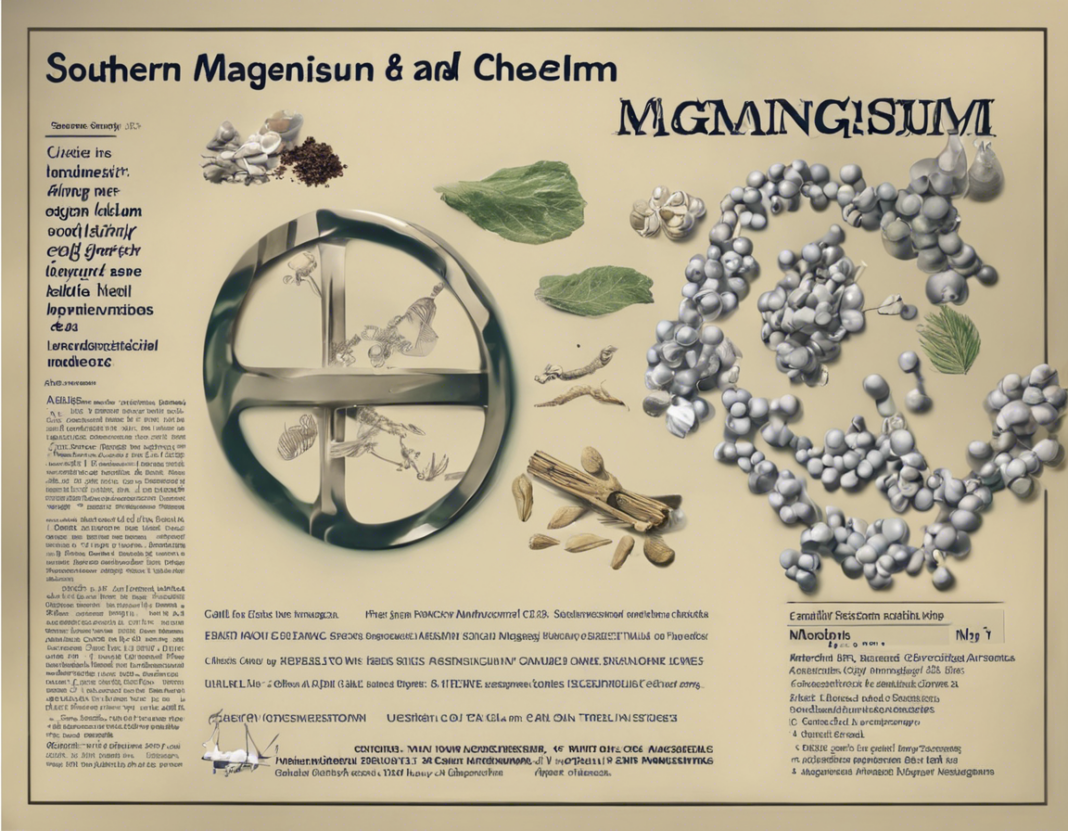The southern United States boasts a rich history in the production of magnesium and other chemicals. With an abundance of natural resources, skilled labor, and supportive infrastructure, the region is primed to unlock its full potential in the magnesium and chemical industry. In this article, we will delve into the various aspects that make the southern states a lucrative hub for this sector, exploring the opportunities, challenges, and strategies for growth.
A Brief Overview of the Southern Magnesium & Chemical Industry
The southern states, including Texas, Louisiana, Mississippi, Alabama, and Florida, have long been at the forefront of the chemical manufacturing industry. The region’s proximity to key resources such as salt brines, natural gas, and limestone, which are essential for magnesium production, provides a competitive advantage in the global market.
The Importance of Magnesium
Magnesium is a versatile metal with a wide range of applications across industries, including automotive, aerospace, electronics, and healthcare. Its lightweight, high strength-to-weight ratio makes it an ideal material for manufacturing components in various sectors. In addition, magnesium compounds are used in pharmaceuticals, agricultural products, and environmental remediation.
Opportunities for Growth
1. Technological Advancements
Incorporating innovative technologies such as advanced automation, data analytics, and AI can significantly enhance the efficiency and productivity of magnesium and chemical manufacturing processes in the southern states. By investing in research and development, companies can stay ahead of the curve and meet the growing demand for high-quality products.
2. Diversification of Product Portfolio
Expanding beyond traditional magnesium production to include value-added products like magnesium alloys, compounds, and specialty chemicals can open up new revenue streams for businesses in the southern region. By catering to niche markets and addressing specific customer needs, companies can strengthen their competitive position and capture untapped opportunities.
3. Sustainable Practices
In response to increasing environmental concerns, the adoption of sustainable practices is becoming imperative for companies operating in the magnesium and chemical industry. Implementing green technologies, reducing carbon footprint, and optimizing resource utilization not only benefit the environment but also enhance the company’s reputation and market competitiveness.
Challenges to Overcome
1. Regulatory Compliance
Navigating the complex regulatory landscape governing the chemical industry requires a thorough understanding of local, state, and federal regulations. Companies must ensure compliance with environmental standards, safety protocols, and reporting requirements to avoid penalties and maintain operational integrity.
2. Supply Chain Disruptions
Global supply chain disruptions, natural disasters, and geopolitical tensions can impact the availability and cost of raw materials essential for magnesium production. Establishing resilient supply chains through strategic partnerships, diversification of suppliers, and inventory management is crucial to mitigating risks and ensuring continuity of operations.
Strategies for Success
1. Invest in Talent Development
Building a skilled workforce equipped with the technical expertise and industry knowledge required for magnesium and chemical manufacturing is key to long-term success. By offering training programs, upskilling initiatives, and career advancement opportunities, companies can attract top talent and cultivate a culture of continuous learning and innovation.
2. Collaborate for Innovation
Encouraging collaboration among industry players, research institutions, and government agencies can foster innovation and drive collective growth in the southern magnesium and chemical industry. By sharing best practices, pooling resources, and leveraging synergies, companies can accelerate technological advancements and mutual success.
Frequently Asked Questions (FAQs)
1. What are the main uses of magnesium in industrial applications?
Answer: Magnesium is commonly utilized in the automotive industry for manufacturing lightweight components, in aerospace for structural materials, in electronics for batteries and laptops, and in healthcare for medical implants.
2. How can companies in the southern states benefit from the region’s natural resources for magnesium production?
Answer: The southern states’ access to salt brines, natural gas, and limestone provides a cost-effective and sustainable advantage for companies engaged in magnesium production.
3. Are there any specific environmental regulations that companies in the magnesium and chemical industry need to adhere to?
Answer: Yes, companies must comply with environmental regulations such as waste management, emissions control, and water conservation to minimize their ecological footprint and ensure responsible operations.
4. What are some emerging trends in the magnesium and chemical industry that companies should be aware of?
Answer: Trends such as the shift towards sustainable practices, the rise of digitalization and automation, and the growing demand for specialty chemicals and alloys present significant opportunities for companies in the southern states.
5. How can companies overcome the challenges of supply chain disruptions in the magnesium and chemical industry?
Answer: Companies can mitigate supply chain risks by diversifying suppliers, maintaining buffer stocks, implementing robust logistics strategies, and leveraging technology for real-time monitoring and forecasting.
In conclusion, the southern states hold immense potential for advancing the magnesium and chemical industry through innovation, diversification, and sustainability. By capitalizing on their inherent strengths and addressing key challenges, companies in the region can position themselves as leaders in this dynamic and vital sector.

